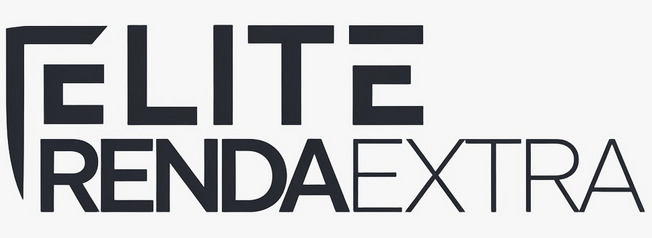Welcome to your ultimate journey through the home-buying process in the USA. Buying a house is a big deal filled with excitement. You must make smart money choices and understand what’s ahead. This guide will explain each important step to getting your dream home, from checking your money situation to understanding mortgage options.
If you’re buying for the first time or already know your way around, the market can still be tricky. We’ll cover the basics: how to work with a real estate agent, the importance of mortgage pre-approval, and the best financial moves to get you to homeownership.
You’ll learn to set a budget that fits your income, look at all kinds of loans, and see how good credit gets you better loan terms. It’s about preparing well to smoothly get the keys to your future home.
Understanding the Home Buying Process
Buying a home in the USA can feel like a big checklist. You need a pre-approval letter, a home inspection, and more. This guide will help you understand these steps. It will make getting your new home smoother.
Pre-Approval vs. Pre-Qualification
Knowing your budget is key before looking at homes. Pre-qualification gives you an estimate of how much you can borrow based on what you tell lenders. But, pre-approval is better. It checks your credit and confirms you have the funds, showing sellers you’re serious.
The Role of a Real Estate Agent
A real estate agent makes buying a home easier. They do more than find houses. They know about the market and local areas, negotiate deals, and help with contracts. Their help can save you money and make sure you find the right home within your budget.
The Importance of Home Inspections
Choosing a house is more than its looks or location. You must get a home inspection. This checks the house’s structure and systems to find any problems. Inspections are important. They can reveal costly issues, save you money on repairs, and let you negotiate with the seller.
Starting to buy a home is a big step that needs planning. It’s about having your finances ready, knowing how real estate agents help, and the importance of home inspections. Each step brings you closer to your dream home.
| Statistic | Detail |
|---|---|
| Importance of Pre-Approval | In competitive markets, pre-approval letters expedite the buying process. |
| Role of Real Estate Agents | Used by the majority of homebuyers to navigate the complex home-buying process. |
| Home Inspection Timelines | Generally range between 10 to 14 days from signing a purchase agreement. |
Exploring Financing Options
Buying a home is a big step. Knowing your financing options can change your buying experience for the better. You might be looking at mortgages for your first house or seeking better loans for lower interest rates. Let’s look into common financing choices like conventional loans, FHA loans, and VA loans, and see how interest rates play a role.
Conventional Loans
Many mortgage lenders prefer conventional loans because they offer clear terms and competitive rates. If your credit is good or excellent, you could get lower interest rates and more flexible terms with a conventional loan. These loans aren’t backed by the government, leading to stricter lending criteria but often better terms for those who qualify.
FHA and VA Loans
FHA loans are supported by the Federal Housing Administration and are great for those needing less strict credit rules and smaller down payments. VA loans are amazing for military members and veterans because they can buy a home with no down payment needed.
Both FHA and VA loans aim to help more people own homes. They are good choices if conventional loans seem too hard to get. FHA loans need a small down payment and are easy to qualify for, while VA loans don’t require down payments or private mortgage insurance, saving you money every month.
Understanding Interest Rates
Interest rates are crucial in any loan. They affect your monthly payments and the total cost over the mortgage’s life. Rates differ among loan types and lenders. It’s important to know how rates are set and what might change them, like the economy, your credit score, loan amount, and how long the mortgage lasts.
Let’s compare how interest rates usually look for different loan types:
| Type of Loan | Average Interest Rate |
|---|---|
| Conventional Loans | Lower rates for higher credit scores |
| FHA Loans | Consistently lower than conventional rates |
| VA Loans | Lower than FHA, with no down payment |
Choosing the right financing option can majorly affect your monthly budget and financial health. It’s smart to talk with various lenders to find the best rates and terms for you, based on your money situation and housing goals.
Saving for a Down Payment
Starting the homeownership journey begins with saving for a down payment. This step is crucial and significantly affects your mortgage conditions.
Setting a Budget
First, you must create a budget. The 28/36 rule is a good strategy. It means spending no more than 28% of your income on housing and 36% on total debts. This keeps your home budget under control.
Opening a separate savings account for the down payment is wise. It helps you save without spending the money too soon. Cutting back on monthly bills by choosing cheaper utilities and insurance options can also help save more money.
Down Payment Assistance Programs
Gathering the money for a down payment can be tough for many. Down payment assistance programs are a big help, especially for first-timers or those with less money. These programs offer loans or grants with low interest. They are run by state and local governments to help more people own homes with smaller initial payments.
For example, many of these programs let buyers pay only 3% down instead of the usual 20%. Getting to know these programs and applying for help can ease the financial strain. It brings you closer to owning your dream home sooner.
Starting your savings early and checking out all down payment assistance options can truly impact your home buying journey. It matches your finances with your dream of having your own place.
The Role of Credit Scores in Financing
Your credit score is vital when buying a house. It affects your loan approval and loan terms, like your mortgage interest rate. Working on your credit score can make buying a home more affordable.
How to Check Your Credit Score
Knowing your credit score is key before getting financing. You can check it through credit bureaus or with your bank’s tools. This helps you keep track and fix any errors quickly.
Improving Your Credit Score Before Buying
To boost your credit score, understand what affects it. Here are ways to improve:
- Pay your bills on time: This can really help your score.
- Reduce your debt-to-credit ratio: Use less of your available credit to look more responsible.
- Avoid opening new credit lines: New inquiries can lower your score. If needed, do it within two weeks to lessen the impact.
Following these tips can improve your credit score. This may lead to better mortgage terms and lower interest rates.
| Credit Score Range | Mortgage Interest Rate | Impact on Monthly Payments ($200,000 loan) |
|---|---|---|
| 760-850 (Exceptional) | 3.307% | $870 |
| 620-639 (Fair) | 4.869% | $1,054 |
A high credit score lowers your interest rate and monthly payments. This means big savings over time. So, improving your credit is critical.
A good credit score offers the best financing options. It’s crucial to look after your credit when thinking of buying a home.
Closing Costs Explained
When buying a home, it’s essential to know about closing costs. These are the fees you pay to complete your mortgage. They greatly impact the total price of your home purchase.
Types of Closing Costs
Closing costs cover various fees. These include lender fees, transfer taxes, appraisal costs, and escrow deposits. You might pay a loan origination fee, about 1% of your loan. Also, there’s a fee for the home appraisal to ensure the price is fair.
How to Estimate Closing Costs
Estimating closing costs can seem complex at first. But lenders must give you a Loan Estimate within three days of applying. This estimate outlines your expected costs, usually 2% to 6% of the loan. For a $300,000 loan, expect to pay between $6,000 and $18,000 in closing costs.
Consider this data from latest surveys and reports:
| Fee Type | Average Cost | Notes |
|---|---|---|
| Origination Fees | 1% of loan amount | Charged by the lender for processing the mortgage |
| Appraisal Fee | Varies | Necessary to confirm home’s market value |
| Escrow Deposit | 2 months of property tax and mortgage insurance | Required at closing |
| Title Insurance | Varies | Protects against previous legal claims on the property |
| Attorney Fees | Varies by state | Mandatory in some states |
To budget wisely, consider using a closing cost calculator. Consulting a local real estate agent can also offer insights. They know about local market conditions and specifics of buying your home.
Sellers can help with your closing costs, known as seller concessions. But there are limits based on your loan type and down payment. Understanding these limits can aid in negotiations and preparing for your home’s financial details.
Navigating the Mortgage Application
Starting the mortgage journey can feel overwhelming, but understanding the process makes it easier. Being well-prepared and working closely with your lender are key. These steps help meet the lender’s requirements successfully.
Gathering Necessary Documents
To make your mortgage application smoother, you’ll need certain documents. You should collect W2s, recent paychecks, bank statements, other income proof, and your last two years’ tax returns. Having these ready beforehand speeds up your application.
Working with Your Lender
It’s vital to work closely with your lender and be honest. They’ll check your debts, income, and credit score to judge if you qualify. Clear communication helps you understand the process and what they expect from you.
Every action you take, like preparing well and teaming up with your lender, makes the journey smoother. Your effort in accurately compiling financial records and maintaining good communication will be key to getting the best mortgage terms.
Understanding Loan Terms and Conditions
Entering the world of homeownership means getting familiar with loan terms and mortgage types. Knowing the difference between fixed-rate mortgages and adjustable-rate mortgages (ARMs) is key. It influences your budget and how much you’ll pay each month.
Fixed vs. Adjustable-Rate Mortgages
Fixed-rate mortgages keep the interest rate the same, making your monthly payments predictable. This consistency helps with budgeting. Many people choose this option for its financial stability. Adjustable-rate mortgages, however, begin with a lower interest rate. This might seem appealing at first.
But the rate can change based on the market, possibly raising your monthly costs and the total you pay on the loan.
Let’s compare the two mortgage types:
| Mortgage Type | Initial Rate | Potential Rate Change | Rate Caps |
|---|---|---|---|
| Fixed-Rate Mortgage | Stable | No change | N/A |
| Adjustable-Rate Mortgage | Lower initial rate | Changes with the market | Limits how much it can increase |
The Significance of Loan Terms
The length of your loan term impacts your finances greatly. Shorter loan terms, like 15 years, mean you pay more each month but less in total interest. This is because of how interest adds up over time. Completing payments sooner can save money in the long run. It’s crucial to understand this when choosing a term that fits your financial goals.
- Short-term loan: You pay more each month but save on interest.
- Long-term loan: Your monthly payment is lower, but you pay more interest overall.
Also, think about prepayment penalties and adjustable rate caps. These can affect your mortgage’s cost and flexibility in the long run. Make sure you’re okay with these terms before agreeing to a mortgage.
Making a choice between mortgage types and loan terms is crucial. Match your choice with your financial needs and goals. This decision could greatly benefit your financial future.
Finalizing Your Home Purchase
You’re nearly at the end of buying your home, and it’s almost time to make it officially yours. Closing on your house is important because it’s the last step before the home is yours. This includes everything from checking your finances to inspecting the house.
The Closing Process
The final step, or closing, ensures the property is yours smoothly. This step can take from 1 week to 2 months, depending on the purchase method. Having a mortgage pre-approval can speed things up by showing sellers you’re ready.
It’s crucial to check for any claims on the property and to get insurance to protect against losses. In some places, you must have a lawyer to help with closing. They can help avoid extra fees and required inspections. Interest rates affect your monthly payments, so they’re important too.
Before getting the keys, make sure everything about the financing and house condition is settled and agreed in writing. Checking the Closing Disclosure is key right before you finish buying your home. It confirms your loan details. Watching for last-minute changes, like tax adjustments, is vital. A final walk-through checks that everything with the house is as promised. This prepares you for when the house finally becomes yours.
To get the full picture, explore this well-researched content.
Finalizing Your Home Purchase
What is the difference between pre-approval and pre-qualification?
Pre-qualification is the first step in buying a home. Lenders estimate how much you might borrow. Pre-approval looks closer at your finances, checking your creditworthiness. It shows what you can afford and makes you a strong buyer.
Why is working with a real estate agent important?
Real estate agents help you navigate buying a home. They provide insights, help find homes within your budget, and negotiate deals. Their experience helps you avoid common mistakes in the process.
How important are home inspections when buying a house?
Home inspections are very important. They uncover any major issues with the property. This helps you know the home’s condition before you buy, saving you from surprise repairs later.
What are conventional loans?
Conventional loans are not backed by the government. They usually have lower interest rates for those with good credit. These loans often require a bigger down payment than government-insured loans.
What are FHA and VA loans?
FHA loans are insured by the Federal Housing Administration and are for people with lower credit scores or small down payments. VA loans are for military members and veterans and don’t need a down payment.
How do interest rates affect my mortgage?
Interest rates determine your monthly payments and total loan cost. A lower rate means you pay less each month and over the loan’s life. Rates vary based on your credit, the loan type, and lender terms.
How can I determine an affordable budget for buying a home?
The 28/36 rule can help you figure out what’s affordable. It says your mortgage shouldn’t be over 28% of your income, and all debts should stay under 36%. This rule is a good starting point.
Are there any down payment assistance programs available?
Yes, there are down payment help programs through federal, state, and local groups. They offer grants or low-interest loans for down payments and closing costs. Check eligibility since it varies by program.
How can I check my credit score?
You can get a free credit report from major credit bureaus or use credit monitoring services. This helps you see your credit score.
What steps should I take to improve my credit score before buying a house?
To boost your credit score, pay bills on time and lower your debt. Don’t open new credit accounts and fix any credit report errors. Keeping your credit use low and having a long credit history help too.
What are some types of closing costs I might incur?
Closing costs can include many fees like for the lender, title insurance, and property taxes. Costs vary by property location and mortgage terms.
How can I estimate closing costs?
Ask your lender for a Loan Estimate form to see expected costs. Closing costs are usually 2% to 5% of the home’s price. Knowing these costs early helps you plan.
What documents will I need for the mortgage application process?
You’ll need to show W2s, bank statements, income proof, tax returns, and job verification. These help lenders check your financial stability.
How should I work with my lender during the application process?
Be open and quick in talking with your lender. Ask questions about anything you don’t understand. Good communication helps the process go smoothly.
What’s the difference between fixed and adjustable-rate mortgages?
Fixed-rate mortgages keep the same interest rate and monthly payment throughout the loan. Adjustable-rate mortgages may have changing rates, which can affect your payments over time.
Why are loan terms significant?
Loan terms decide how long you’ll pay back the mortgage and your monthly payment size. Short terms mean higher payments but less interest overall. Long terms spread out payments, but cost more in interest.
Can you describe the closing process?
The closing process is when you sign all the paperwork to buy your home, pay closing costs, and get the title. Make sure your financial arrangements are in order before this step.
(For information regarding your home loan options, consider reaching out to [Bank Name] for their financial services. Click here for [Bank Link]).



